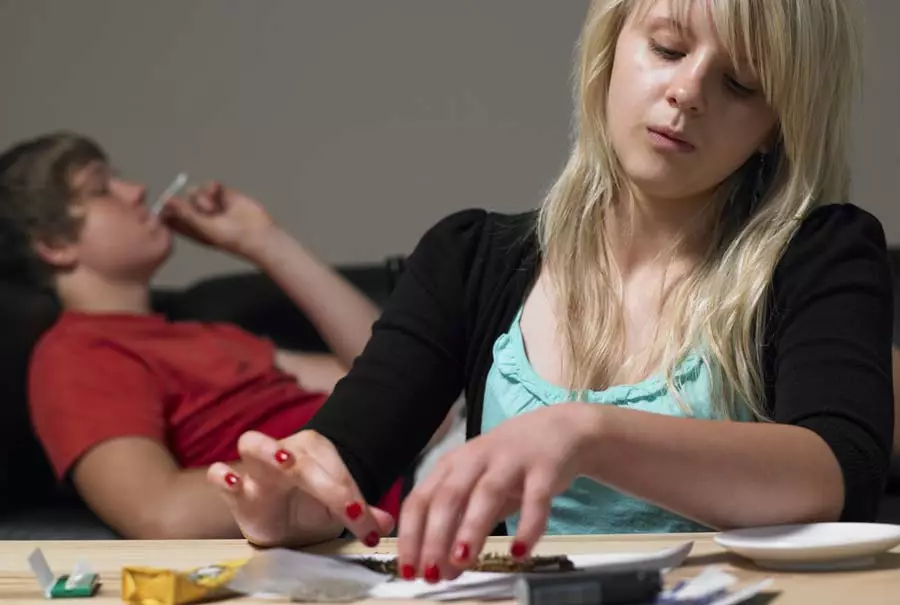Couples Rehab in Texas
Call Now To Get On The Road To Recovery.
Addiction Treatment that
Just Works
Individualized treatment programs delivered in a comfortable, relaxed setting promote healing in your recovery journey.
*As required by law, all communications with Resurgence Texas are HIPAA Compliant and 100% Confidential
Substance Abuse for Married or Non-Married Partners
Once upon a time, it was thought that when both partners in a relationship suffered from substance abuse disorders, they should seek out individual therapy. The plan was for individuals to seek help for their drug addiction separately from one another. Having both partners present in therapy was seen to be too much of a distraction and a potential roadblock to the healing process.
Many couples face the common struggle of alcohol and drug addiction, and it’s crucial they tackle these challenges together in rehab to provide mutual support and motivation in overcoming these addictions.
We now generally reject this idea because of its lack of validity, as many clients have successfully navigated behavioral couples therapy and beaten their substance abuse issues.
In a modern couples rehab in Texas, spouses are encouraged to fight through drug addiction together while also addressing fundamental relationship difficulties that must be resolved to ensure long-term sobriety. Anxiety and frustration, not to mention marital strife, can cause one or both partners to begin drinking or using again if these issues are not resolved fully.
If you’re in a committed relationship and require substance abuse treatment and want to include your partner, Resurgence Texas has a top-tier solution!
Substance Abuse and Couples: When is a ‘Couples Rehab Near Me’ Called For?

Drug or alcohol addiction is a widespread problem in modern relationships. Manipulative behaviors, such as codependence and enabling, can further imprison couples in a cycle of addiction. Participating in cc0cother couples who are struggling with the same issue is beneficial for those who are a couple fighting an addiction to drugs or alcohol. Couples rehab programs are specifically designed to address and treat drug or alcohol addiction, recognizing the impact of addiction on individuals and their relationships.
These programs offer specialized treatment to address the unique dynamics and challenges faced by couples struggling with substance abuse. Couples in drug rehab centers can strive toward long-term sobriety together and receive support from other couples going through the drug abuse process.
During addiction treatment, the therapist checks in with the couple to see how things are going and make sure they haven’t relapsed and fallen back into drug and alcohol addiction.
During regular meetings for behavioral couples therapy, clients go over new goals regarding addiction treatment and revisit ones from the previous meeting to track progress.
Couples’ progress is monitored in relation to the goals they established in the prior addiction treatment meeting. Creating and revising short-term goals during couples rehab for substance abuse treatment. Shorter goals are easier to hit and build up to larger goals -providing a direct route to the major accomplishment in the relationship.
The therapist works with the couple to help them talk through their issues, both those that have been there from the beginning and others that have arisen more recently.
Learning How to Achieve Recovery as a Couple
When there is an addiction component to the relationship dynamic, the focus of addiction therapy during drug and alcohol rehab will be on developing relationship- and recovery-friendly coping mechanisms. The destructive emotions of wrath, irritation, and resentment can be fueled by an addict’s substance use disorder challenges at home.
Paranoia, delusions, and other negative feelings may arise depending on the drug or drink in question. Domestic violence is one type of conflict that can result from this. Couples can learn to communicate better and resolve disputes through coaching at our couples rehab in Texas for substance abuse. The treatment process involves developing relationship- and recovery-friendly coping mechanisms, highlighting the structured approach of the program.
Couples Drug Rehab Programs and Dual Diagnosis Clients
The comprehensive and holistic treatment program forms the backbone of any successful couples drug rehab program. Individual, couple, and group psychotherapy are crucial components. Issues of mental health, such as abuse, neglect, or loss, will be investigated and addressed if combined with substance addiction. We have found that one partner can be dealing with mental health concerns or a traumatic past, and without acknowledgment and being addressed, this can prevent a couple from fully healing.
All of the participants’ distinct emotional concerns will be addressed individually throughout the course of these drug rehab programs. The couple’s element will be more stable moving forward if both partners are actively attempting to resolve their own concerns. When partners require addiction treatment, it’s still important to address the individual challenges while moving forward with behavioral therapy and other treatment models.
Couples gain coping skills and relationship approaches to aid their collective healing. In many cases, the couple’s relationship dynamic is deeply dysfunctional. The healing process will be more efficient if people can learn to communicate and resolve disagreements more effectively. Among these learned abilities in a couples rehab program are:
Speaking and Verbal Communication Skills During a Couples Rehab Program
By practicing fair and non-confrontational communication skills, couples can strengthen their relationships. Improve your relationship’s communication by learning to recognize the effects of your own eye contact, body language, unproductive accusing statements, and attentive listening.
Positive or negative, couples who have developed their communication skills through behavioral therapy and other treatment models are better able to express their thoughts and feelings to one another.
Anger Management During Substance Use Counseling

Alcohol and drug use can exacerbate tensions at home and increase the risk of violent arguments and assault. Indeed, drugs or alcohol are factors in the majority of occurrences of domestic violence.
Couples in recovery will learn about and obtain better ways of coping with challenging emotions like frustration and stress, as well as with problematic events that result in anger and violence.
Alternative Methods of Conflict Resolution
An understanding of how to approach conflicts in relationships with calm and even mindfulness are crucial components of the couples’ rehab process. Your emotional state can be calmed, and a better style of dialogue can result from the right strategies of approach, such as not going on the attack when conversing with your loved one.
Another useful tool can stem from restating your words before beginning a discussion that may become heated.
Activities to Decrease Stress
There is no greater obstacle to long-term sobriety than stress, which can serve as a catalyst for relapse. Partners can learn to regulate stress in their relationship by learning skills such as deep breathing exercises, mindfulness, yoga, guided meditation, or massage therapy, all of which lessen the chance of relapse.
Addiction Treatment that
Just Works
Individualized treatment programs delivered in a comfortable, relaxed setting promote healing in your recovery journey.
Behavioral Couples Therapy for Addiction in Relationships
Both spouses may require treatment for an addiction, so it’s important to have options available. Behavioral couples therapy (BCT) is a proven method of addiction treatment for married people or couples. Substance-abusing couples can benefit from this style of psychotherapy since it emphasizes strengthening the couple’s relationship and the family as a whole.
Both parties agree to abstain from alcohol and drugs and pledge their support for each other in their sobriety and recovery efforts in a “recovery Contract” they construct. The methodology is evidence-based, with research from the Substance Abuse and Mental Health Services Administration (SAMHSA) highlighting its efficacy.
BCT is predicated on the idea that relapse rates for recovering couples can be reduced via improved communication and conflict resolution skills. A short-term program provides couples with a series of tasks and tools that can strengthen their bond through adopting helpful and supportive behaviors with one another. In many cases, BCT is used in tandem with conventional, one-on-one psychotherapy.
Locations Close to Me that Offer Treatment for Partners

Couples have the option of participating in either an outpatient or a residential treatment center when looking for a ‘couples rehab near me,’ in other words, a local couples rehab program. Some rehabilitation centers may permit the couple to stay living together if they enroll in the residential program, which provides a higher degree of care. Partial hospitalization programs (PHPs) represent the highest level of outpatient care, but intensive outpatient programs (IOPs) are also available.
The following are components of the treatment plan:
Additionally, we offer specialized alcohol addiction treatment services for couples, focusing on addressing the challenges of alcohol-related substance abuse within the relationship.
Medical Detox
During a medically supervised detox process, the body gets rid of any traces of drugs or alcohol, and most will experience withdrawal symptoms while their bodies reacclimate to life without alcohol or drugs. The withdrawal from the addictive substance is what causes the symptoms.
However, withdrawal symptoms typically start around 12 hours after the last drink or pill was taken. A medical detox is designated as such because it is supervised by clinicians who intervene in different ways depending on the severity of the client’s withdrawal symptoms. Most people need 7-10 days to recover from the effects of withdrawal and detox, though this can vary my substance type as well as by individual.
Your Specific Level of Therapy
There are both one-on-one and group psychotherapy options available. Both methods can be used to teach partners how to improve the parts of their relationship where a dysfunction has led to the development of addictive behaviors. In therapy, the therapist will also investigate potential psychological causes for the patient’s distress.
Both partners will receive treatment for any separate mental health issues they may have, such as depression, bipolar disorder, or anxiety. Couples that attend group support together will get the chance to learn from each other’s experiences and gain intimacy and understanding throughout treatment.
MAT or Medication Assisted Treatment
Medication that aids in abstinence may be recommended for some people. Drugs like naltrexone, buprenorphine, and methadone bind to the brain’s opioid receptors, greatly diminishing the substance’s action and thereby reducing drug cravings. This results in less desire to use drugs, which lessens the likelihood of relapse. In the first year of sobriety, MAT can greatly increase stability.
Other Offerings at a Couples Rehab in Texas
Spa-like services are only one of the perks of a high-end recovery program for couples. Diverse experiential activities have been shown to boost mood and alleviate stress during treatment. Everything “complements” the standard psychotherapy and group treatment sessions.
Yoga, music therapy, acupuncture, hikes and outings, healthier diet and meals, meditation, art therapy, massage, and recreational therapy are all examples of these types of interventions.
Interventions like the Twelve Steps or Comparable Programs
Both standard 12-step groups and alternative programs like SMART Recovery and LifeRing are available for couples in treatment. Couples in recovery are welcome to attend meetings at their local chapters.
Strategies for Recovery and Preventing Relapse
Before finishing their time in treatment together, couples should work together to create individualized plans to reduce the likelihood of relapse. This activity will be more beneficial to the recovery process if these plans are as specific as possible.
When discussing what could lead to a relapse, couples should tell the truth to each other. Many of these difficulties can be addressed constructively throughout rehabilitation, offering each partner new tools with which to deal with their addictions.
Speaking and Communication Abilities
By practicing fair and non-confrontational communication skills, couples can strengthen their relationships. A couple’s ability to effectively express their thoughts and feelings is greatly enhanced by their ability to communicate effectively.
Controlling Your Anger
Alcohol and drug use can exacerbate tensions at home and increase the risk of violent arguments and assault. When a couple is in recovery, they learn to cope with difficult feelings like frustration and stress in constructive ways other than anger.
Alternative Methods of Conflict Resolution
Understanding how to approach relationship conflicts (such as misunderstandings or divergent ideas) with calmness is a crucial part of the rehabilitation process. The techniques for resolving arguments that kids learn can be applied in all sorts of situations.
Activities to Decrease Stress
Stress is the greatest obstacle to sobriety because it is a known relapse trigger. Partners can learn to regulate stress and prevent relapse by practicing relaxation techniques including deep breathing exercises, mindfulness, yoga, guided meditation, or massage therapy.
Steps to Take After Couples Treatment to Maintain Recovery

Recovering from addiction is a process, not a destination, and finishing couples rehab is just the beginning. Adopting rehabilitation skills as part of one’s lifestyle takes time and effort. Couples will benefit greatly from the safety net of continual care, which will aid their ongoing healing. Some examples of these are:
Living Together Sober
In the early stages of sobriety, a sober living environment free of drugs and alcohol can be a great assistance in preventing a relapse. If one partner is more committed to sobriety than the other, or if one partner is struggling with addiction while the other is doing well, this may be a beneficial strategy.
Group Therapy As a Couple
Couples who participate in weekly couples and/or individual counseling during the early stages of recovery may find it easier to work through difficulties. Couples therapy offers timely support and a neutral space for the couples to air their grievances. Two people in recovery greatly benefit from having access to continuous counseling, as a clinician can pinpoint problematic habits that may be undermining the dedication to sobriety. The therapist can then give them targeted advice in the form of homework they can use in their everyday conversations.
12-Step Models
New sober friends and peer support can be found through involvement in a recovery community. There will likely be many other couples in recovery at the same time, and they may make friends with some of them. This might be a great way to meet other sober spouses and strengthen your commitment to a clean living in recovery. A.A., Narcotics Anonymous, SMART Recovery, and LifeRing are all examples of such communities.
Despite taking these vital aftercare steps, couples nevertheless face unique difficulties just by virtue of sharing a home. This indicates that the sobriety of both partners is threatened when one is experiencing difficulties.
When you are aware of the potential obstacles to your recovery, you may take the necessary steps to ensure a speedy and full restoration of your health. Perhaps attending more meetings or having an extra counseling session could assist in settling the problem and put the marriage back on solid ground.
Call Today to Get Support for You and Your Partner Together
At Resurgence Texas, we have a robust couples’ substance abuse program. For more information, contact a member of our Admissions team today.
All calls are completely confidential and can help you and your spouse or partner determine options to begin a solid foundation for recovery. Get the fighting chance at sobriety you both deserve and reach out now!
Addiction Treatment that
Just Works
Individualized treatment programs delivered in a comfortable, relaxed setting promote healing in your recovery journey.
